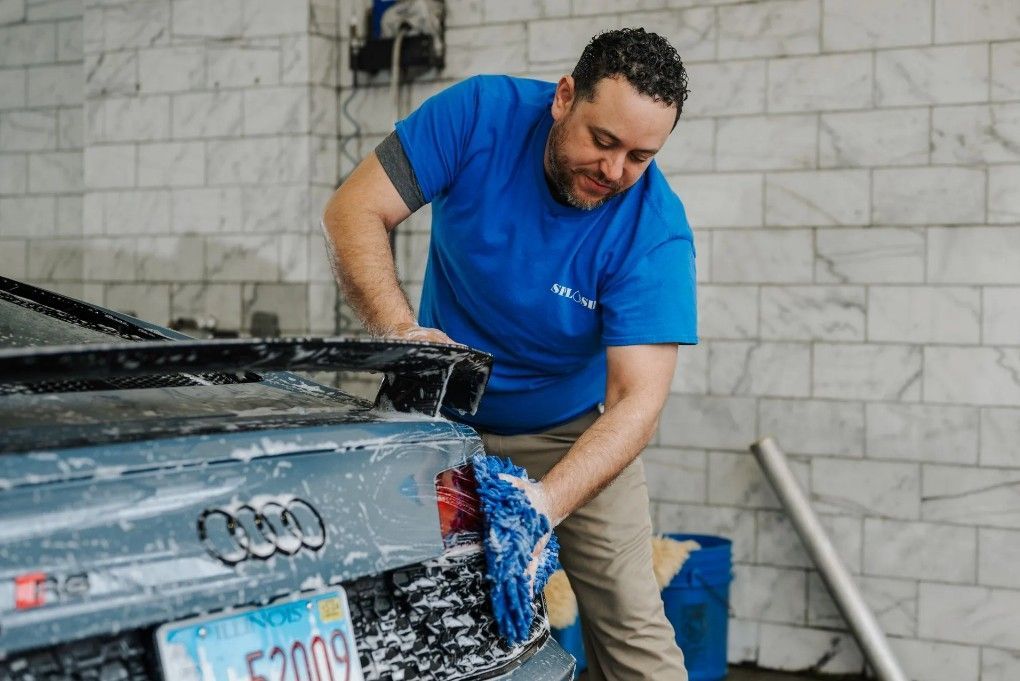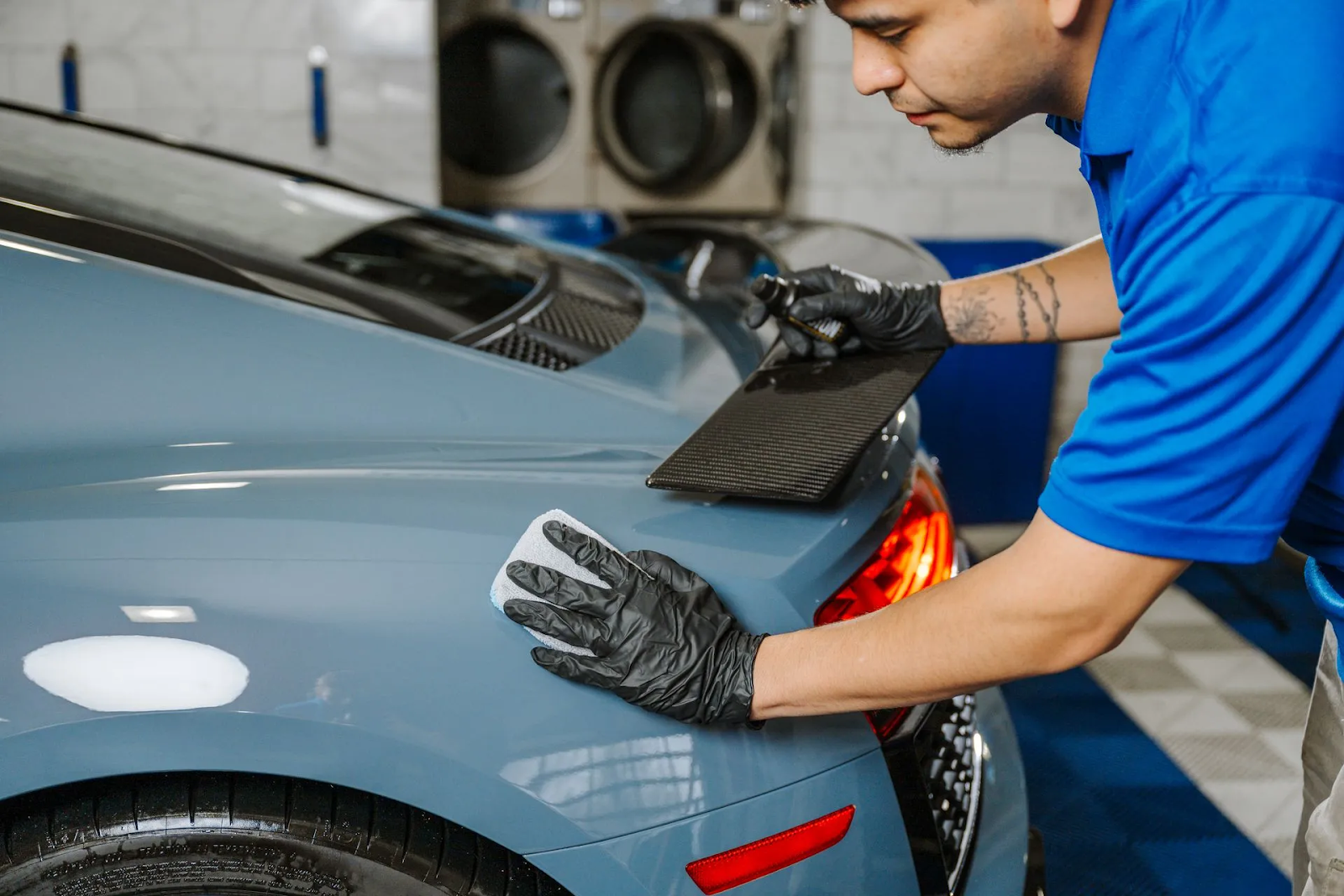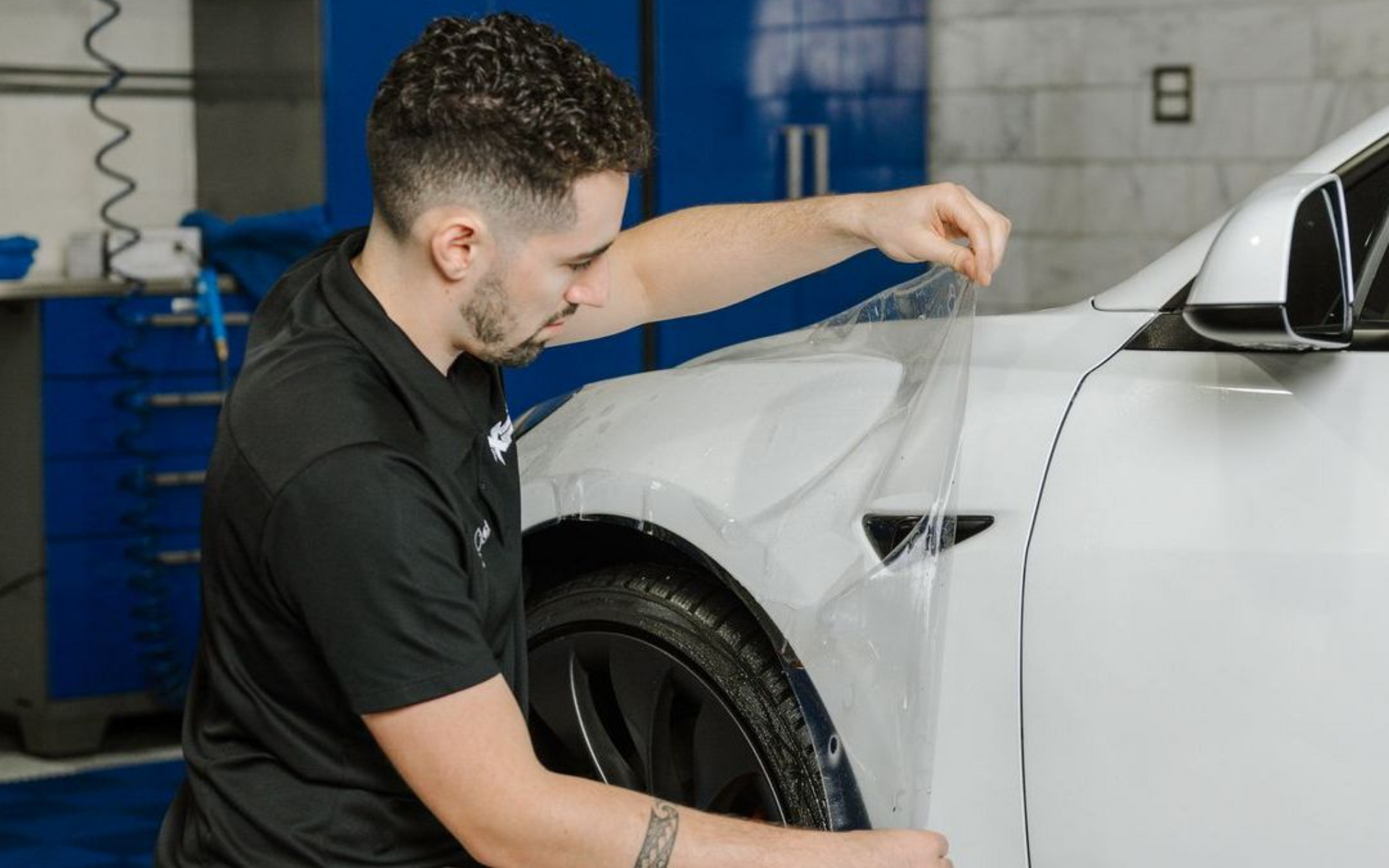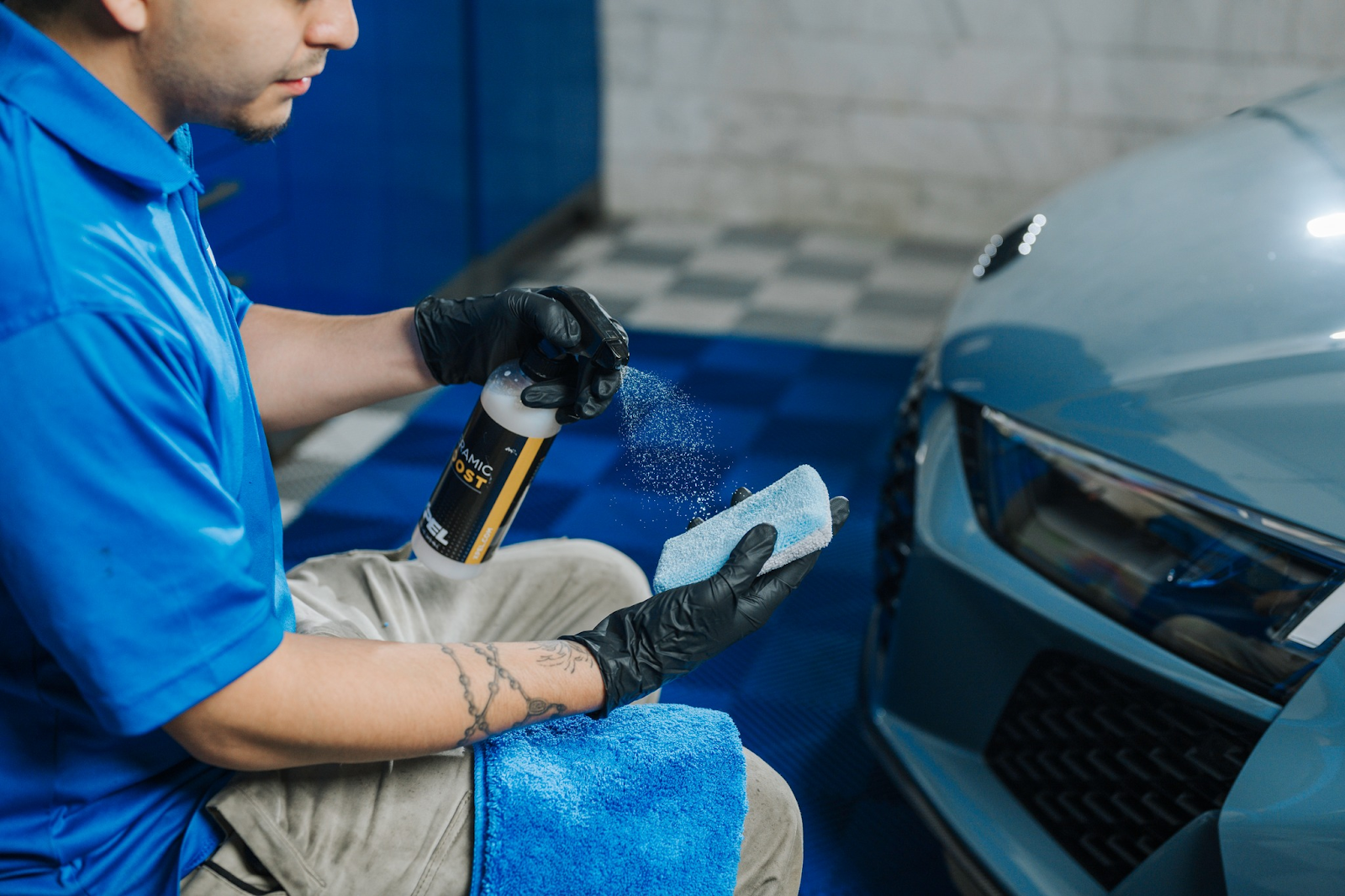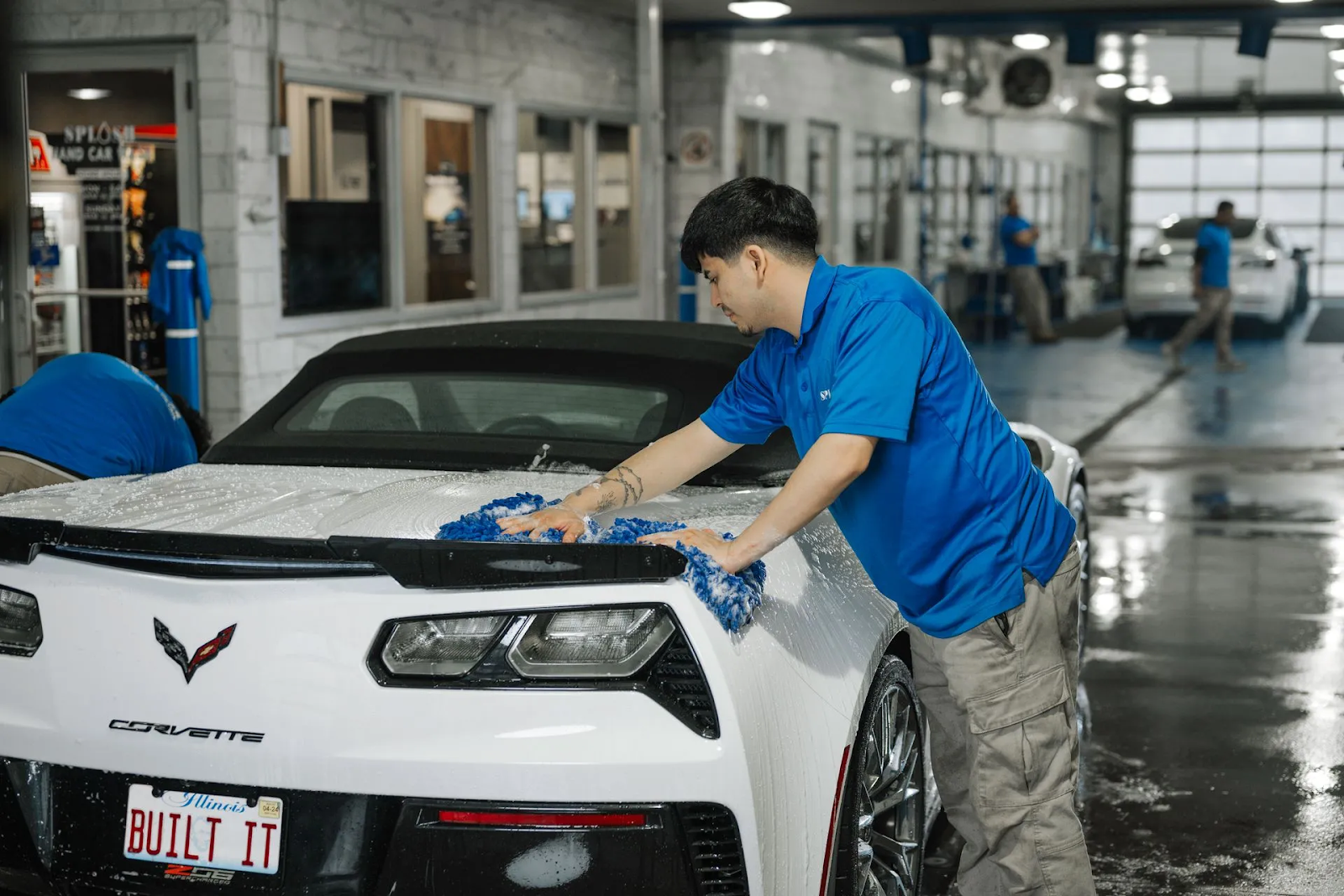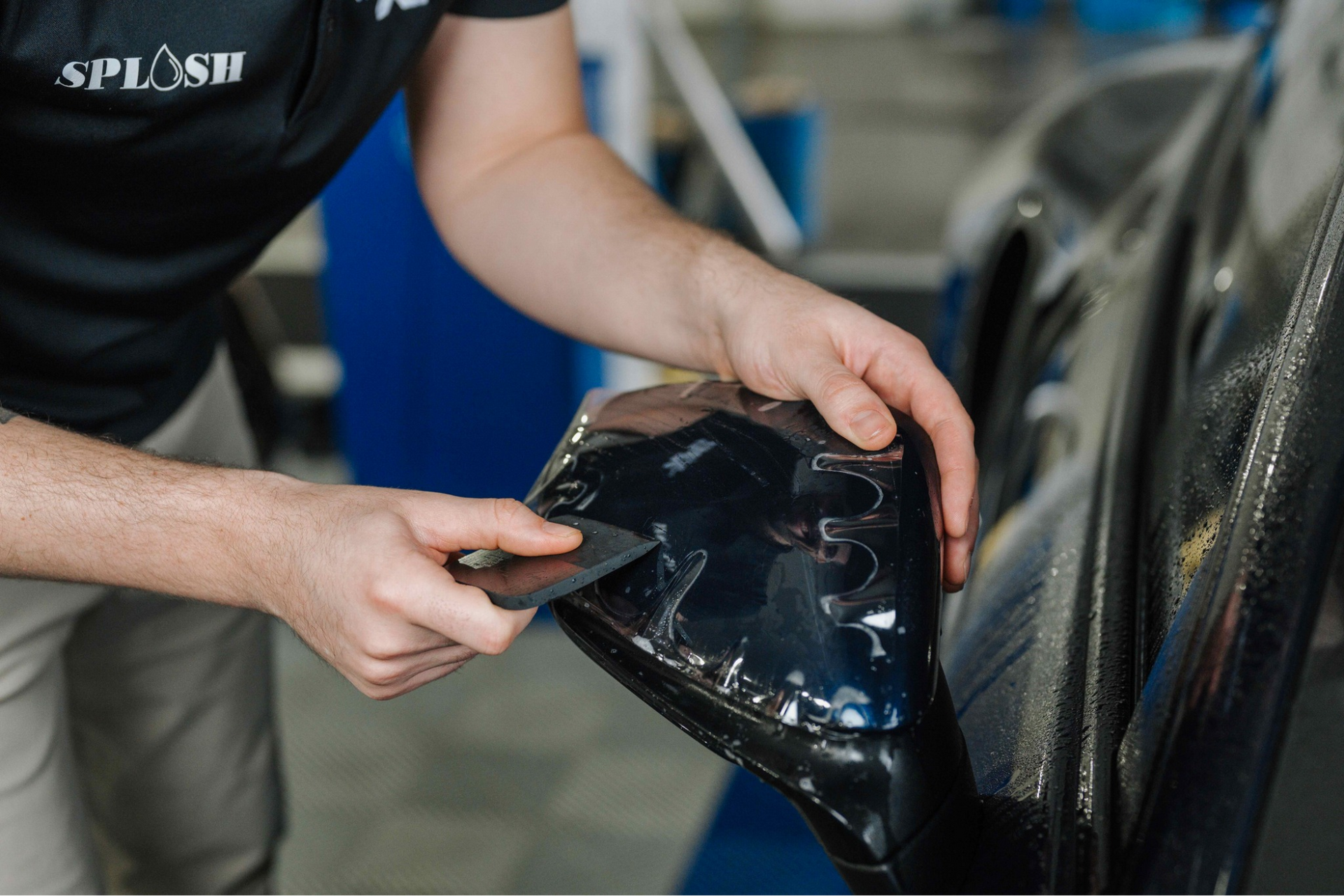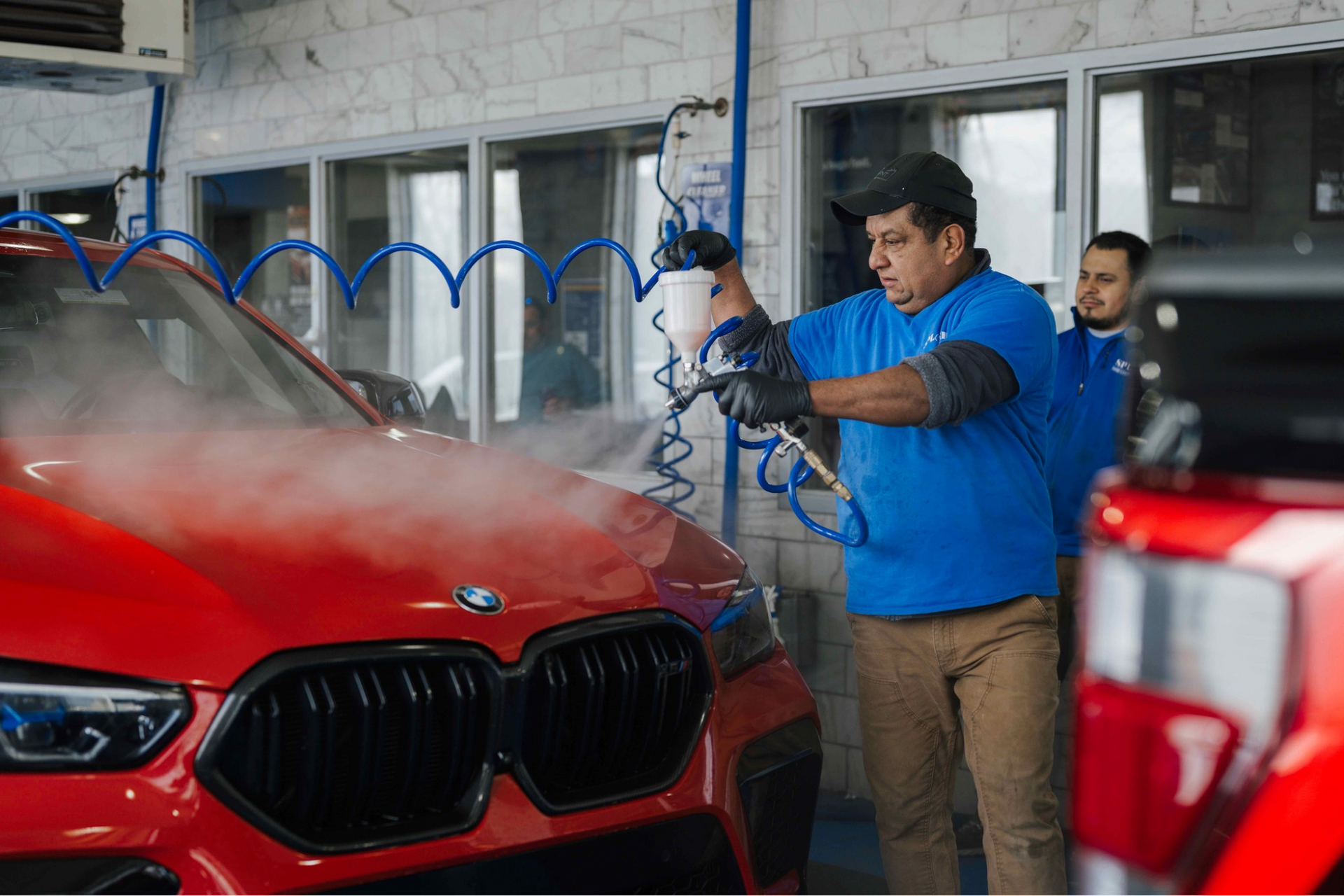When it comes to maintaining the beauty and resale value of your vehicle, paint protection film (PPF) has emerged as a leading solution for savvy car owners. It's no secret that the state of your car’s paint plays a major role in its overall appearance and value. That’s why so many drivers are looking for ways to safeguard their investment. However, despite its growing popularity, several myths about PPF still persist, particularly in areas like Libertyville, IL, where residents are known for their meticulous care of their vehicles year-round.
Unfortunately, misconceptions about PPF are keeping some car owners from experiencing its full benefits. These myths, often rooted in outdated information or misunderstood technology, have caused unnecessary hesitation. In this guide, we aim to clear the air by breaking down the most common myths surrounding paint protection film, explaining how modern PPF works, and providing you with all the facts you need to make a well-informed decision for your vehicle.
What Is Paint Protection Film (PPF)?
Paint Protection Film (PPF), often referred to as clear bra, is a high-performance, transparent urethane material that is professionally applied to the exterior surfaces of a vehicle. Its primary purpose is to provide an invisible barrier between your car’s paint and the elements that cause damage. PPF acts as a defensive shield that protects against everyday hazards that can harm your car's finish.
PPF is designed to withstand a range of damage that is common on the road, including:
- Road Debris and Gravel: Small rocks and debris kicked up from the road can cause minor scratches, chips, or even deeper damage to your vehicle’s paint. PPF absorbs the impact and protects the underlying surface.
- Rock Chips: Flying rocks from other vehicles, construction sites, or road repairs are one of the biggest threats to a car’s paint. PPF provides a protective shield against these.
- Insect Acids: Bugs, particularly insects like flies and mosquitoes, leave behind acidic residues that can damage your car's paint if left untreated. PPF prevents these acidic compounds from interacting directly with the paint, keeping it safe.
- Tree Sap: When tree sap lands on your car, it can be sticky, hard to remove, and potentially damage the paint. PPF helps prevent sap from sticking to the surface, or makes it easier to clean off without leaving marks.
- UV Rays: The sun’s ultraviolet (UV) rays are a major cause of paint fading and oxidation. PPF has built-in UV protection, shielding the paint from sun damage and helping preserve the car’s original color.
- Harsh Weather Elements: Rain, snow, salt from road treatments, and even bird droppings can all take a toll on a vehicle’s paint. PPF protects against these elements, keeping your car looking fresh and new longer.
Professional-Grade PPF: The Modern Solution
Gone are the days of bulky, visible plastic wraps. Today’s high-quality PPF is nearly invisible, offering an ultra-clear finish that doesn’t detract from your car’s aesthetics. The film adheres seamlessly to your vehicle’s surface, maintaining the vehicle's color, gloss, and shine.
In addition to being almost invisible, modern PPF products also offer remarkable durability. Self-healing properties are one of the most notable advancements in recent years. This means that minor scratches or swirl marks caused by regular use will disappear over time when exposed to heat. Whether it’s from the heat of the sun or the warmth from washing your car, these self-healing capabilities restore the film’s smooth surface, ensuring that the film continues to protect without showing signs of wear.
Additionally, PPF is highly resistant to staining, making it easy to keep clean and maintain its appearance. The film doesn’t yellow over time like older versions of PPF, and it resists most contaminants that would otherwise stain or damage the paint.
Common Misconceptions About PPF
Despite its many benefits, there are still some myths surrounding paint protection film that can cause potential buyers to hesitate. Some people are unsure about the effectiveness of PPF or have false assumptions about its limitations. Let’s tackle some of these myths head-on.
Myth #1: Paint Protection Film Turns Yellow Over Time
Reality: Yellowing used to be a legitimate concern with older generations of PPF, especially those exposed to high UV levels. Early films were made with lower-quality materials that did not hold up well under sunlight.
Modern Truth: Today’s premium PPF, such as those installed by professional car care services in Libertyville, IL, is UV-resistant and made from advanced polymers that resist discoloration. Most high-quality films are now infused with anti-yellowing technology, ensuring they remain crystal clear for years.
Unless you're opting for an outdated or off-brand product, yellowing should not be an issue with current-generation PPF.
Myth #2: PPF Peels Easily After Installation
Reality: One of the most persistent
paint protection film myths is that it will begin to peel, bubble, or crack shortly after application. While this may happen with DIY installations or improper application techniques, it's far from typical when handled by professionals.
Modern Truth: Professionally installed PPF adheres smoothly and securely to the vehicle’s surface. Certified installers in Libertyville use specialized tools, controlled environments, and follow strict preparation protocols to prevent lifting or bubbling. Many films even come with warranties of 5 to 10 years, giving peace of mind to customers.
Proper maintenance and care will further prevent any premature peeling. Routine car washes and avoiding aggressive pressure washing near the film edges can extend its longevity.
Myth #3: Paint Protection Film Will Damage Your Paint
Reality: Some car owners believe that installing or removing PPF could damage the factory paint underneath. This myth is especially common among first-time users unfamiliar with the product.
Modern Truth: Quite the opposite—PPF protects your paint. The film acts as a sacrificial layer that absorbs damage, preventing it from reaching the actual paint surface. If applied and removed correctly by trained professionals, PPF will not cause any harm to your vehicle’s finish.
In fact, when it comes time to sell or trade in your car, the protected paint underneath will likely be in better condition than unprotected areas, increasing your vehicle’s value.
Myth #4: PPF Is Only for Exotic or Luxury Vehicles
Reality: While it's true that exotic car owners have long used PPF to protect their investments, the belief that it’s exclusive to luxury vehicles is outdated.
Modern Truth: Paint protection film is for anyone who wants to keep their car in top shape. Whether you drive a family SUV, a daily commuter, or a new truck, PPF offers value by preserving your paint, reducing the need for touch-ups, and helping maintain resale value.
In Libertyville, where road salt, gravel, and varying weather conditions can be harsh on cars year-round, PPF is a smart option for drivers of all vehicle types—not just high-end sports cars.
Myth #5: You Can Install PPF Yourself and Save Money
Reality: The internet is full of DIY kits promising perfect results at a fraction of the cost. However, the tools, expertise, and environment required to apply PPF correctly make it a poor candidate for do-it-yourself jobs.
Modern Truth: PPF installation is a technical and delicate process. Professionals undergo training and use specific equipment to ensure flawless application. Attempting a DIY install often leads to misaligned edges, trapped air bubbles, and even permanent creases in the film—wasting both time and money.
In Libertyville, many local car owners trust expert installers to do the job right the first time, ensuring a clean look and long-lasting protection.
Myth #6: PPF Makes Your Car Look Dull or Cloudy
Reality: A common concern is that adding a film layer will alter the vehicle's finish or reduce its shine.
Modern Truth: Today's high-end paint protection films are optically clear and designed to enhance the look of your paint. In fact, some versions offer a glossy finish that amplifies the paint’s depth and shine, while others are available in matte finishes for a custom aesthetic.
Rather than dulling your car's appearance, PPF often improves it. When installed correctly, the film is virtually undetectable—blending seamlessly with the car’s surface.
Myth #7: Waxing or Ceramic Coating Is Enough Protection
Reality: While waxing and ceramic coatings offer a layer of protection, they’re not designed to stop physical impacts from road debris or stone chips.
Modern Truth: Wax and ceramic coatings provide great protection against water spots, bird droppings, and light stains, but they can’t compete with the physical barrier that PPF provides. Paint protection film is the only solution designed to absorb impact, resist abrasion, and self-heal from minor scuffs and swirls.
For full protection, many Libertyville drivers combine PPF and ceramic coatings—PPF for physical damage resistance and ceramic coatings for ease of maintenance and added hydrophobic properties.
Myth #8: PPF Doesn’t Last Long
Reality: Some people believe PPF is a short-term solution that needs constant reapplication.
Modern Truth: Depending on the product and the installer, high-quality paint protection film can last anywhere from 5 to 10 years or more. Premium brands also offer manufacturer warranties that cover yellowing, peeling, and cracking—provided the film is maintained properly.
The longevity of the film is influenced by driving conditions, exposure to the elements, and how well it’s cared for. Regular hand washing and avoiding harsh chemicals will help maintain its clarity and durability.
Myth #9: You Can’t Wash or Detail Your Car After PPF Is Applied
Reality: Another widespread myth is that vehicles with PPF require special or limited maintenance routines.
Modern Truth: Once the film has cured (usually within 7 days), your vehicle can be washed and detailed like normal. In fact, regular washing is encouraged to prevent buildup on the film. Hand washing is ideal, and some owners also apply ceramic coatings over their PPF for easier cleaning and improved resistance to stains.
However, it's advised to avoid abrasive cleaners or automatic car washes with spinning brushes, as they may damage the film's surface over time.
Why Libertyville Drivers Are Turning to Paint Protection Film
The roads in and around Libertyville, IL, present a unique challenge to vehicle owners. With cold winters, road salt, springtime gravel, and humid summers, the elements take a toll on unprotected paint. That’s why more drivers in the area are choosing to invest in PPF—it offers peace of mind and long-term protection.
Local professionals understand the driving conditions specific to Lake County and tailor their installation packages accordingly. Whether you need a full front-end wrap, high-impact area coverage, or custom PPF packages, working with a trusted Libertyville PPF installer ensures optimal results.
What to Look for in a PPF Installer in Libertyville
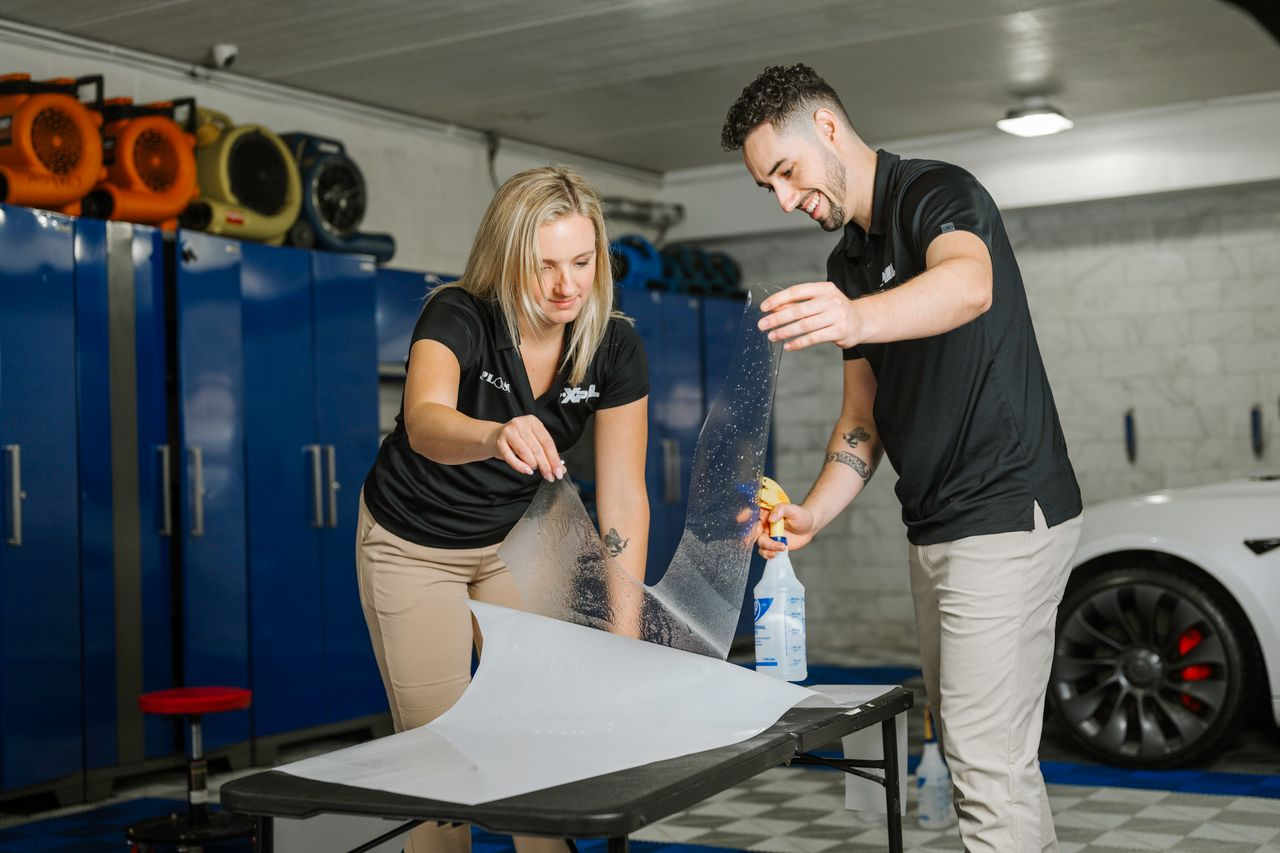
If you’re considering Paint Protection Film (PPF) for your vehicle, it's important to take the time to select the right installer. The quality of installation directly impacts the longevity and performance of the film, so you want to ensure your vehicle is in the hands of professionals who will treat it with the care it deserves. To make the process easier and ensure you get the best protection, here are a few key tips to help you choose the right PPF installer:
1. Certification and Experience: Choose Professionals with Proven Expertise
When it comes to installing PPF, certification and experience are non-negotiable. Certified installers have undergone training specific to the brands they work with and are skilled in applying the film to a wide range of vehicles. Look for installers who are certified by leading PPF manufacturers like XPEL, 3M, or SunTek. These certifications guarantee that the installer understands the nuances of proper film application, which can vary depending on the car’s make and model.
Beyond certification, you’ll also want to find an installer with significant experience. A professional with years of hands-on experience is more likely to provide high-quality work and can quickly address any challenges that might arise during installation. Don’t hesitate to ask about the number of installations they've completed and to see examples of their previous work. A strong portfolio of past installations demonstrates both their skill and reliability.
2. Film Quality: Opt for Trusted, High-Performance Brands
The type of paint protection film (PPF) used plays a critical role in the overall performance of your vehicle’s protection. Top-tier PPF brands offer superior features like self-healing capabilities and UV protection. When speaking with potential installers, make sure to ask about the brand of PPF they use. Some well-known and trusted PPF brands include:
- XPEL: Known for its self-healing technology, which helps the film repair minor scratches on its own over time. XPEL is highly durable and resistant to discoloration, offering protection that lasts for years.
- 3M Scotchgard Pro Series: A reliable and popular choice, known for its high-gloss finish and resistance to yellowing. It provides excellent protection against rock chips, road salts, and bird droppings.
- SunTek Ultra: Features advanced protection with its self-healing technology, offering a smooth finish that resists staining and fading from UV rays.
Choosing a well-established PPF brand ensures your car is protected by high-quality materials that have been proven to withstand the elements. Inferior brands may be cheaper, but they often fail to provide the same level of protection and longevity.
3. Installation Environment: A Clean, Climate-Controlled Workspace
The installation environment plays a major role in the outcome of the PPF application. A clean, climate-controlled workspace is essential for ensuring that the film adheres properly and doesn’t get contaminated during the installation process. Dust, dirt, or moisture can easily get trapped under the film, leading to imperfections like bubbles, wrinkles, or peeling later on. Additionally, extreme temperatures or humidity levels can affect how the film bonds to your vehicle’s surface.
A reputable installer will work in a well-lit, dust-free environment and will ensure that the vehicle’s surface is thoroughly cleaned before applying the PPF. Ask the installer if they have a dedicated, climate-controlled space for PPF installations, as this significantly contributes to a flawless finish. If the shop operates in less-than-ideal conditions, you might want to reconsider.
4. Warranty: Ensure Protection on Both the Film and Labor
A good warranty is a sign of confidence from the installer in both their work and the materials they use. Most reputable PPF brands offer warranties of 5 to 10 years, which cover issues like yellowing, peeling, or bubbling. However, the warranty on the installation labor is just as important. Some issues may arise from poor installation, and a warranty on labor ensures that if there are any problems with the film’s application, the installer will address them without additional cost to you.
Before agreeing to any installation, be sure to ask for details about the warranty. A solid warranty should cover:
- Material defects: If the film starts to peel, fade, or yellow prematurely.
- Installation issues: If the film starts to lift or show bubbles due to improper installation.
- Free repairs or replacements: Make sure the warranty offers free fixes or replacements in case the PPF needs attention during the warranty period.
Also, clarify what’s not covered by the warranty to ensure there are no surprises down the road.
5. Reputation and Reviews: Research Customer Experiences
The reputation of the installer plays a major role in determining the level of service you can expect. A reputable installer will have positive reviews from previous clients who can vouch for their quality, professionalism, and customer satisfaction. Check online reviews on platforms like Google, Yelp, and Facebook to get a better understanding of the installer’s track record.
Look for reviews that mention the attention to detail, timeliness of service, and the quality of the installation. Word of mouth is also a powerful tool; if you know someone who has had PPF installed on their vehicle, ask about their experience and if they recommend a particular installer.
6. Cost and Value: Don’t Choose Based on Price Alone
While cost is an important factor, it should not be the sole determining factor when choosing a PPF installer. Opting for the cheapest option can lead to subpar results, as inferior materials or poor installation methods can cost you more in the long run through the need for repairs or early replacement of the film.
Instead, focus on the value of the service. Consider the quality of the materials used, the experience of the installer, the warranty offered, and the overall reputation of the shop. You want to ensure that you’re getting the best protection for your vehicle, and sometimes that means investing a little more upfront for better quality.
Be sure to get multiple quotes from different installers and ask for a detailed breakdown of what’s included in the price. Some shops may offer package deals for full vehicle coverage, while others might charge per section of the car (e.g., front bumper, hood, or side mirrors). Comparing prices helps you find the best deal while ensuring you don’t compromise on quality.
7. Customer Service and Communication: How Well Are They Listening to Your Needs?
A good PPF installer will listen to your needs and provide personalized recommendations based on your vehicle and the level of protection you’re looking for. They should explain the different types of films available, what areas of your car need the most protection, and any maintenance requirements after installation. If an installer isn’t willing to take the time to explain things in detail or if they’re rushing through the consultation, it may be a sign that they’re not fully committed to delivering a high-quality experience.
Pay attention to how they communicate with you. Are they responsive to your calls or emails? Do they take the time to answer your questions and ensure you feel comfortable with the process? Clear communication and excellent customer service will help you feel confident in your decision to trust them with your vehicle.
Protect Your Investment: Debunking PPF Myths for Libertyville Drivers
There’s a lot of misinformation floating around about paint protection film (PPF), but the truth is clear: modern paint protection film is an incredibly effective, long-lasting solution to shield your vehicle from the wear and tear of everyday life. While myths and misconceptions may suggest otherwise, the reality is that PPF is a game-changer when it comes to preserving your vehicle’s appearance, value, and overall longevity.
Gone are the days of outdated, bulky, or yellowing films that offered limited protection and diminished the aesthetic of your car. Today’s PPF is crystal clear, virtually invisible, and highly durable, offering superior protection from rock chips, road debris, environmental contaminants, bird droppings, tree sap, and even minor scratches. Whether you're driving a sleek luxury sedan, a rugged off-road SUV, or a trusty daily commuter, paint protection film acts as an invisible shield that keeps your car looking as good as new for years to come.
And for those in Libertyville, PPF is not just an option—it’s a smart investment. With harsh weather conditions, road salts in winter, and the everyday grind of driving, your vehicle faces a constant battle against damage. By opting for high-quality PPF, you are not only enhancing the aesthetic appeal of your car but also maintaining its resale value and preventing costly repairs down the road. Don't let outdated myths or misconceptions hold you back from giving your vehicle the protection it deserves.
Ready to Protect Your Vehicle?
The professionals at Splash Hand Car Wash and Detail in Libertyville, IL are here to offer expert paint protection film installation with a focus on precision, quality, and customer satisfaction. Connect with us today and experience the benefits of premium PPF installation, ensuring your car stays in pristine condition for years to come. Drive with confidence. Drive protected. Your vehicle deserves it!
Contact us now to get started!

